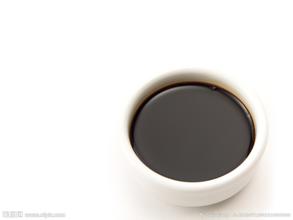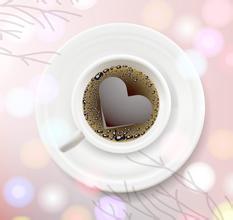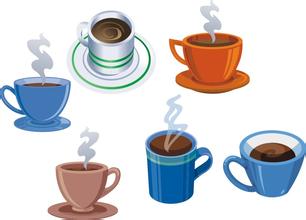Coffee flavor and taste characteristics of Cliff Manor in Jamaica
Jamaica is a constitutional monarchy. On August 6, 1962, the current Constitution entered into force. The head of state of Jamaica is the Queen of England, and the Governor of Jamaica is appointed by the Queen after being recommended by the Prime Minister to the Queen. In accordance with the provisions of the Jamaican Constitution, the Governor appoints the Majority Leader of the House of Representatives as the Prime Minister of the Government and appoints Cabinet Ministers on the basis of the Prime Minister's nomination. The Jamaican Parliament is composed of the Senate and the House of Representatives, which are appointed and elected. The Jamaican Labor Party and the people's National Party have been in power for a long time, and the political situation is stable, but social problems such as unemployment, poverty, drug trafficking and violent crimes are prominent. In February 2016, the Labour Party won the general election, and on March 3, Andrew Holnis was sworn in as the new prime minister's National Defense Commission as the highest defense decision-making body, with command and management of the army. The current strength of the National Defence Force is less than 4000. Among them, there are more than 2500 active personnel and nearly 1000 reservists. The troops in active service are divided into army, navy and air forces, with two infantry battalions, one flight brigade, one coastal defense force, one engineering battalion and one service battalion. The commander-in-chief of the army is the chief of staff of the armed forces and the current chief of staff, Major General Stuart Sanders (StewartSaunders), who took office in October 2007. The Jamaican Police Force and the Special Police Force are responsible for security and government agency security tasks respectively. Jamaican villages generally have a central square, which is the center of the whole village. The square is surrounded by the village government, hospitals, shops, long-distance bus stations and so on. Most of the houses in the village are built of cement and bricks. Urban architecture and planning are European style, there are many high-rise buildings, coastal cities have beautiful restaurants and swimming pools and so on. The clothes that residents often wear are shirts and shorts. Women wear skirts at ordinary times and suits on solemn occasions. Residents like to dance disco, like to listen to Laiga music, like to dance in groups. The staple foods of the residents are rice, corn, bread, beef, milk, vegetables and so on. Young people like to drink Coca-Cola, while old people like tea and coffee. Beer and dragon wine are also favorite drinks for many people.
It is necessary to take a closer look at the myth of Blue Mountain Coffee, because the image of the past is often inconsistent with the reality of today. In 1725, Sir Sir Nicholas Lawes brought the first Blue Mountain Coffee species from Martinique to Jamaica and planted them in the St.Andrew area. Today, St. Andrew is still one of the three major producing areas of Blue Mountain Coffee, while the other two are Portland and St..Thomas. In eight years, Jamaica exported more than 375 tons of pure coffee. In 1932, coffee production reached its peak and more than 15000 tons of coffee was harvested. The real Blue Mountain Coffee is one of the most favorable coffee growing conditions in the world. The weather, geological structure and topography of Jamaica provide a unique ideal place. The ridge across Jamaica extends to the eastern part of the island, with the Blue Mountains rising to more than 2100 meters. The cool weather, foggy weather and frequent rainfall reconcile the rich land of Rain Water. Here, coffee trees are planted in a mixed way, alongside banana and avocado trees in terraced fields. Some small estates also grow Blue Mountain Coffee, such as Wallenford Estate, Silver Hill Estate and Atlanta Estate in J.Martinez. Even the largest landowners in the region are small-scale growers by international standards, many of whom are small landowners whose families have been working on the land for two centuries. The coffee industry in Jamaica faces a series of problems, such as the impact of hurricanes, the increase in labor costs and the difficulty of mechanizing terraces. It is difficult for many small estates and farms to rationalize the cultivation of Jamaican Blue Mountain Coffee, which is harvested by hand from June to November. After picking, it goes through washing, peeling, fermentation, dehydration, drying, shelling, baking and other processes in order to get a ripe blue mountain coffee bean. In the process of raw bean processing, there are special personnel responsible for quality supervision in each step. For the very precious Blue Mountain Coffee, the packing and transportation mode adopted by the Jamaican government is also different. Unlike other coffees, Blue Mountain Coffee is not packed and transported in cloth bags at the rate of 60kg / bag, but in wooden barrels to the standards of 70kg/, 18kg/ and 15kg/ barrels. Jamaica is also the last country to still transport coffee in traditional wooden barrels. Jamaican Blue Mountain coffee beans must obtain a certificate of quality recognition issued by the Jamaican Coffee Industry Committee, which is the only body in Jamaica authorized to issue such a certificate. And each batch of exports will have special quality supervision experts responsible for sampling, baking, grinding and brewing coffee, and finally make a judgment on whether it is up to the standard or not.

Important Notice :
前街咖啡 FrontStreet Coffee has moved to new addredd:
FrontStreet Coffee Address: 315,Donghua East Road,GuangZhou
Tel:020 38364473
- Prev

Introduction to the unique sour and bitter Jamaican coffee Yinshan manor flavor
Only coffee grown in the Blue Mountain area above 1800 meters above sea level can be called Blue Mountain Coffee. A coffee enthusiast whom the reporter knows in the United States is even more demanding, insisting that the coffee grown at an altitude of 2256 meters is Blue Mountain coffee. Coffee beans grown in the lower mountains of the island of Jamaica can only be named Jamaican alpine coffee because of their different qualities. In addition
- Next

Introduction to Valenford Manor, the flavor of Jamaica Blue Mountain Coffee Manor
It used to be the residence of the Indian Arawak people. Columbus discovered the island in 1494. It was colonized by Spain in 1509. The British occupied the island in 1655. It became one of the British slave markets from the end of the 17th century to the beginning of the 19th century. England proclaimed the abolition of slavery in 1843. It became a British colony in 1866. Joined the Union of the West Indies in 1958. Internal autonomy was obtained in 1959. 1961
Related
- Does Rose Summer choose Blue, Green or Red? Detailed explanation of Rose Summer Coffee plots and Classification in Panamanian Jade Manor
- What is the difference between the origin, producing area, processing plant, cooperative and manor of coffee beans?
- How fine does the espresso powder fit? how to grind the espresso?
- Sca coffee roasting degree color card coffee roasting degree 8 roasting color values what do you mean?
- The practice of lattes: how to make lattes at home
- Introduction to Indonesian Fine Coffee beans-- Java Coffee producing area of Indonesian Arabica Coffee
- How much will the flavor of light and medium roasted rose summer be expressed? What baking level is rose summer suitable for?
- Introduction to the characteristics of washing, sun-drying or wet-planing coffee commonly used in Mantenin, Indonesia
- Price characteristics of Arabica Coffee Bean Starbucks introduction to Manning Coffee Bean Taste producing area Variety Manor
- What is the authentic Yega flavor? What are the flavor characteristics of the really excellent Yejasuffi coffee beans?

